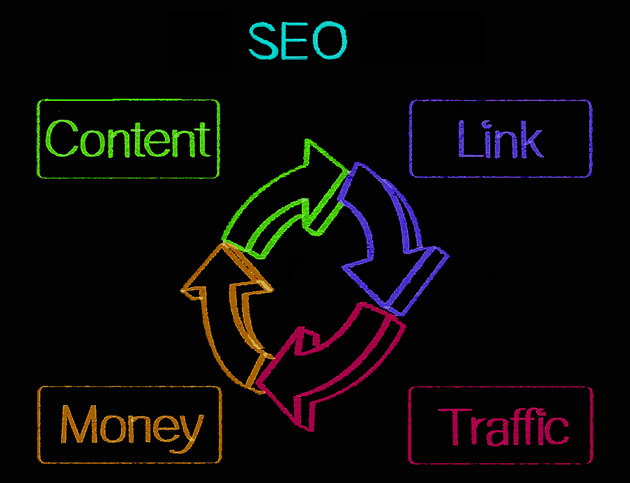Back to Basics: 10 Expert SEO Tips For Your Website
The most visible businesses succeed well in two areas: They not only put their resources into improving their search engine ranking, but they also provide convincing pitches to prospective customers that arrive on their website. If you’re a new business, it might feel too overwhelming to compete against, but knowing a few expert tips will help you go a long way.
Expert SEO Tips For Your Website:
- Google Authorship
Experts write about Google Authorship and debate whether it’s actually helping or not. The big thing that many seem to miss, however, is the fact that having an image appear beside your search engine result makes you that much more visible in the long run. Even if you aren’t the first result on the front page, seeing a high-quality author portrait makes readers more likely to click through to that site instead.That said, you don’t need to tag every page and post on your website. Put your Google Authorship tag on a well-written, high quality piece of content to solidify your reputation as an expert in your industry. This also goes hand-in-hand with structured data markup. - Adding Citations
For any location where you’ll be listing the name of your business, be sure to ensure all listings are uniform and maintain the same content. In other words, ensure that the name, contact information, address and phone number are all congruent, not just similar. - Better Content
Google prefers content to be specific, so be sure to keep your posts clear and on point with the topic. Be sure that you’ve written at least 600 words for the piece, or else Google may think that the content is too thin to be useful; short content is penalized. - URLs
Ensure that your URLs are absolute, not relative; there should not be numerous parameters and queries affixed to the URL, which makes them too long and unmemorable. If your URLs need to be rewritten, get started sooner rather than later — and be sure to redirect old pages when necessary, as broken links merely stop the flow of traffic. - Using Alt Text
This is another tag that requires special care, but it shouldn’t be skipped. Sometimes, it’ll be empty, but it should be on every image that you use on your website; there should be something indicating what is stored there if the reader cannot load images for any reason, and Google uses this to understand what the image is.When it comes to hyperlinking an image, this tag should be considered similar to anchor text on your page; while you should not keyword stuff this section — penalties have been enacted in response to such tactics — this should give you an idea of what kind of text to put here. It’s a tag for the blind. - Improve Page Speed
Take advantage of the Google Page Speed tool to determine how quickly your website loads. Most people don’t want to wait more than a second for a page to load, especially if they’re on their mobile device. For best results, aim for a score higher than 90. - Noindex and Robots.txt
A robots.txt file only stops crawling, not indexing. If there is a page you don’t want indexed, use a noindex tag instead of the robots.txt file. - Avoiding Penalties
Google penalties can be difficult to deal with, especially if you’re not well informed about penalty recovery. In this instance, it is best to look for an expert to help your website recover.The longer the status goes untreated, the harder it is to improve. An auditor will know the best strategy to implement and how to speak with Google to achieve the best results. - Delaying Indexing
If you’re building a brand new website, there’s only one good way to ensure that Google doesn’t prematurely index it: add a login to access it. As stated above, robots.txt isn’t meant to stop a site from indexing; Google doesn’t need to follow a hyperlink to find your website on the Internet. If you leave it open, you might find it’s in the search engine before you’re ready. - Annual Site Audits
The average business owner finds it tricky to keep up with all the different SEO changes. To ensure you’re still at the top of your game, having an annual website audit will give you an idea of where you may be lacking traffic and what changes you can make to reward yourself with more customers.
The bottom line is that SEO involves links, quality text and a clean reputation. In addition to ensuring your website is on topic, you’ll want an intuitive website as well; after all, if nobody can find your content, it doesn’t matter how great it is. With quality content, others you link to are more likely to link back to your website.










